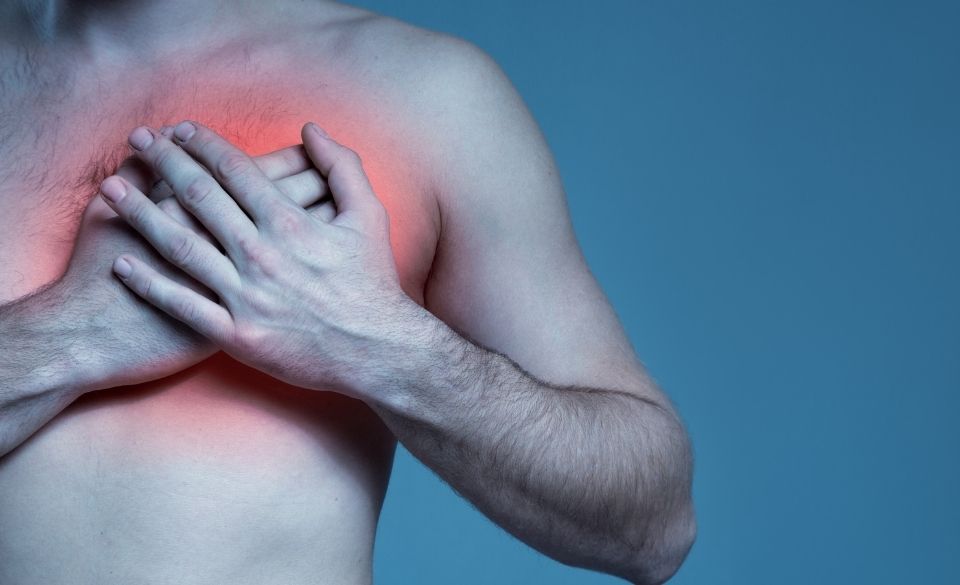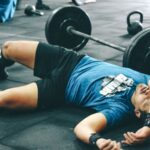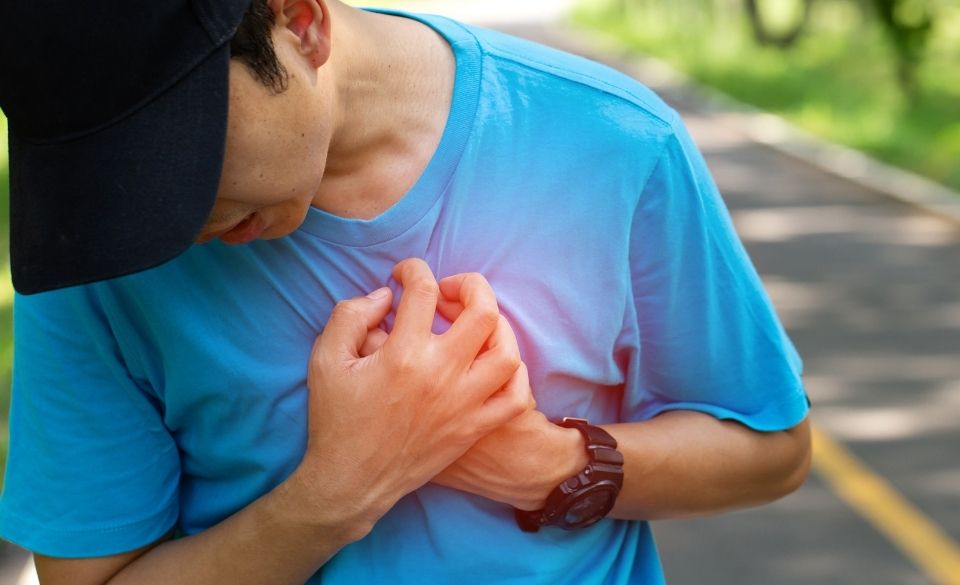
Heart Palpitations During & After Exercise – Is it Dangerous?
Page Contents
Many of us have experienced heart palpitations or heart flutters at least once in our lives. However, it is a feeling we often forget.
That is until we start to experience heart palpitations during exercise.
Heart palpitations or commonly known as heart flutters are common during and after exercise. If you have experienced it before you will know it may feel like your heart has skipped a beat. It can also feel like the heart is beating too fast or slow, giving you the feeling it is fluttering or pounding.
There are many reasons why this occurs and in this article, we are going to discuss what causes of palpitations during and after exercise, as well as if any treatment is needed.
Continue reading to learn more about:
– What is Heart palpitations?
– Heart palpitations when exercising
– Palpitations during and after exercising
– Symptoms and causes
What is Heart Palpitations?
Our hearts usually beat at around 60-100 beats per minute, and it is something we don’t feel so often. However, the harder we train and the harder the heart works, the more it becomes noticeable. During exercise, it is not uncommon to reach a heart rate outside the normal figures, and this can be even up to and over 200 beats per minute.
Palpitations occur when the heart misses a beat or changes its rhythm for a short second, it often feels like the heart is pounding or fluttering. While this may feel similar to having a high heart rate in training. However, palpitations give a much different feeling.
Many people experience heart palpitations before and after exercise. However, it is usually not as common during exercise as the heart rate is already high.
After exercise it is common when the heart rate decreases back to normal, you get palpitations. This is mainly due to the higher adrenaline level after exercise and the palpitations can occur at an increased rate or frequency.
Heart palpitations or flutters are generally perceived as an irregular pulse. That means palpitations are often perceived as missing a beat, a sensation of the heart-stopping, or the skipping of a beat.
What Causes Heart Palpitations?
The heart is a complex system and if it is disrupted in any way, the person will or may experience heart Palpitations.
So, what causes heart palpitations?
There are numerous causes. However, the most common reasons a person may experience an irregular beat is from:
– Stress
– Anxiety
– Dehydration
– Loss of Electrolytes
– Anaemia
– Thyroid Issues
– Pregnancy or Menopause
– Heart Disease
– Hormone changes
Depending on the seriousness and diagnosis of the heart flutter or palpitation, there are different treatment options available. However, most of the time flutters or the feeling of missing a beat is caused by stress and anxiety. So, the most appropriate way to treat this is to avoid anything that can trigger it. That means reducing stress, avoiding stimulants, and improving the quality of your sleep.
However, if your palpitations are diagnosed as arrhythmia (abnormal heart rhythm) you may need to do some exercises at home or see a doctor. One exercise you can perform at home is deep breathing.
If you have a more serious form of arrhythmia, you may need to have a catheter ablation, which helps to destroy tissue that causes the irregular beats. Other forms of treatment include:
– Cardioversion by medication or an electrical shock
– Pacemaker or cardioverter defibrillator.
– Surgery
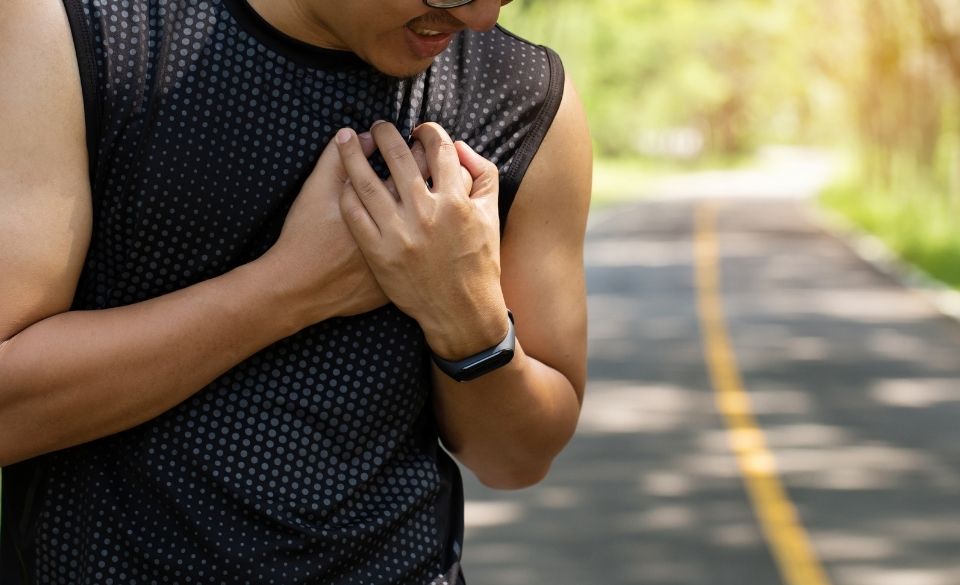
Heart Palpitations When Exercising
Generally, most people don’t experience heart palpitations when exercising. This is because the heart is already working at a high rate.
However, a new study found that many top athletes have electrical heart issues. The study discovered that there is an increasing number of athletes recording false-positive ECGs. That means that athletes that have electrical abnormalities in the heart while exercising may be completely normal.
That being said, if palpitations do occur during exercise it can sometimes be a misconception of the ventricles contracting before the atria have filled the ventricles with blood. This can then give you a feeling of a skipped beat, palpitation, chest pain, and sometimes shortness of breath.
However, it is important to understand that the latest research has found that the occasional heart palpitation when exercising is actually common and even more so in athletes exercising at a high intensity.
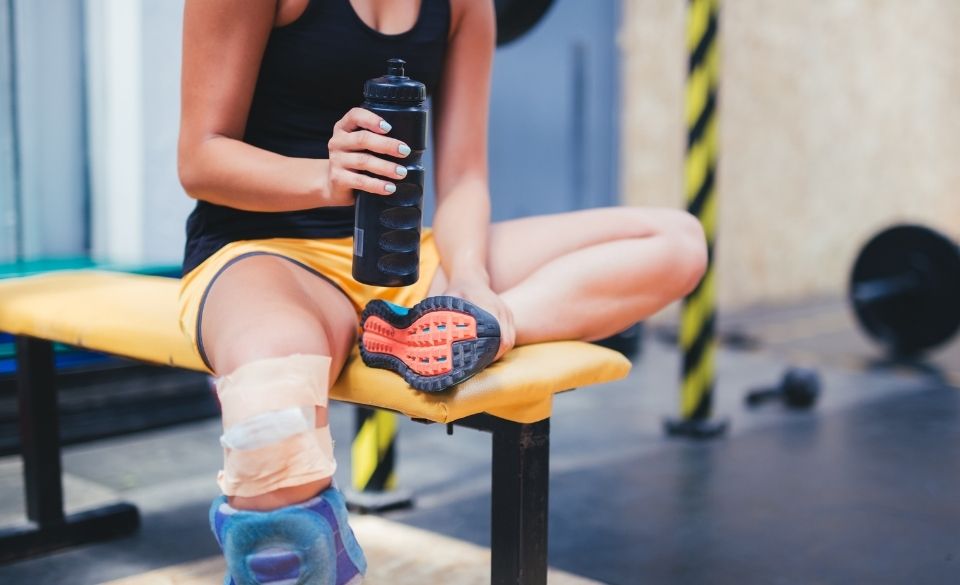
Heart Palpitations During and After Exercise
If you experience heart palpitations during and after exercise it will typically pass quickly, and only occur frequently. This generally means you don’t need to see your GP. However, if the palpitations become more frequent during or after exercise you may need to contact your GP. Same with if you experience shortness of breath, chest pain, light headedness, and loss of consciousness after exercise.
To help prevent palpitations during and after exercise it is important to stay hydrated and keep your electrolytes balanced. Other things like reducing stimulant use like caffeine, and reducing the amount of alcohol can all help prevent heart flutters from happening during and after exercising.
Heart palpitations Hours After Exercise – What Should You do?
If you have regular heart palpitations hours after exercise, speak with your local GP. Regular anomalies are not common and should be looked at by a professional. However, if you get palpitations hours after exercise every so often, there are some things you can do to help prevent it from happening. These include:
– Reduce stress levels
– Use deep breathing techniques
– Avoid or limit alcohol intake
– Reduce or stop the intake of caffeine
– Stay away from nicotine products
– Hydrate properly after exercise
– Hydrate with electrolytes
Regular drinking of water each day can also help stimulate the vagus nerve, which can help prevent irregular heartbeat and supraventricular tachycardia. That means not having enough fluid daily or after exercise can contribute to a faster heart rate.

